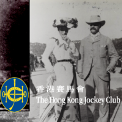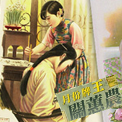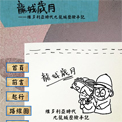-
History & SocietyGeography & EnvironmentArt & CultureCommunication & Media
-
History & SocietyGeography & EnvironmentArt & CultureCommunication & Media
-
View Oral History RecordsFeatured StoriesAbout Hong Kong Voices
-
Subsidiary websites
-
Hong Kong Memory Project
Musical

The musical was another popular genre in post-war Hong Kong and Southeast Asia where the female audience was predominant. Its rise can be traced back to the 1930s when audiences went wild over Angels in the Street (Shanghai, 1937), featuring the singer Zhou Xuan. Its many songs became great hits, and adding song to film became a new trend; after the war, the trend was brought to Hong Kong from Shanghai. For example, the Hong Kong production, Songs of the Peach Blossom River (1956), directed by Chang San-kuen with Chung Ching as lead actress, featured numerous songs. For a time, songs seem to have become an indispensable component of film production. The capacity to produce musicals increased as filmmakers enlisted the help of south-bound film artists and singers such as Yao Min and his sister Yao Li. Film became the venue for a rich diversity of Shanghai-style Mandarin pop-songs, local opera songs, and foreign pop-songs. The Wild, Wild Rose (1960), produced by Motion Pictures & General Investment’s (MP&GI), directed by Wong Tin-lam and starring Grace Chang, for instance, became an “instant classic”.
Shaw’s followed the trend and produced musical films in abundance in the 1960s. These included Doe Chin’s Les Belles (1960), Love Parade (1961), and The Dancing Millionairess (1963), all spectacular westernized musicals with lavish sets, glamorous costumes, and grand staging. Moreover, Shaw’s brought in talents from Japan--and through them, Japanese production technology. The most famous among them was Inoue Umetsugu. Born in Kyoto, Umetsugu joined Toho Company Ltd as assistant director and director, and was known for being an efficient and prolific director and screenwriter. In 1967 he was recruited by Shaw’s as director-cum-screenwriter, and was one of the most outstanding among local Japanese directors. He excelled in making films featuring song and dance, with youth and love as themes, and often added a touch of Broadway. These films were hugely popular among the younger audience. Umetsugu’s better-known works included Hong Kong Nocturne (1966), King Drummer (1967), and Hong Kong Rhapsody (1967). Another film, The Lark (1964), starring the renowned 1960s singer Carrie Ku Mei, is based on a love story between a singer and a reporter. It features such songs as Love in the Wedding and Lover’s Tears which would remain popular for years to come.Videos
Tags:
no tagsCopyright © 2012 Hong Kong Memory Project. All rights reserved.















